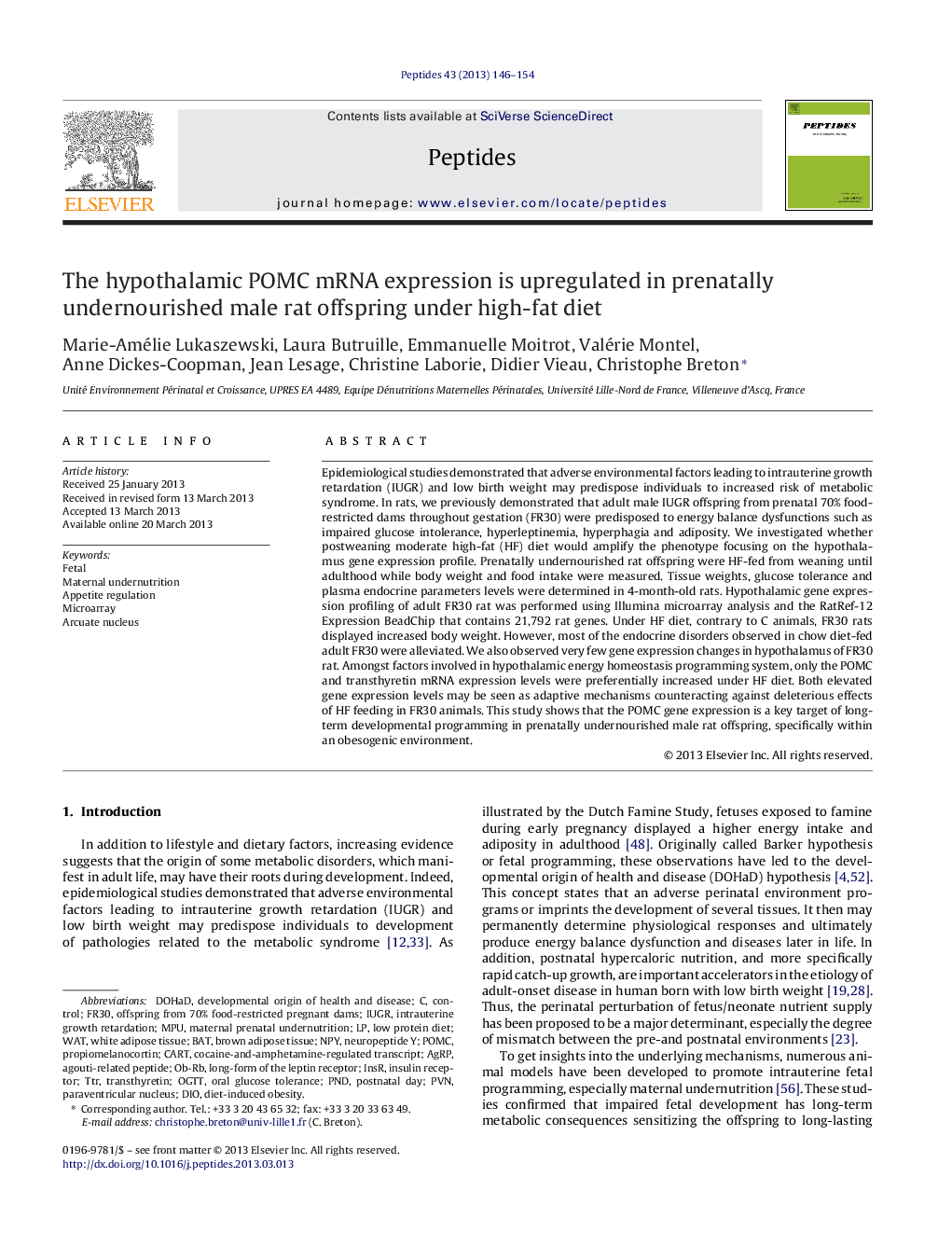| Article ID | Journal | Published Year | Pages | File Type |
|---|---|---|---|---|
| 8348795 | Peptides | 2013 | 9 Pages |
Abstract
Epidemiological studies demonstrated that adverse environmental factors leading to intrauterine growth retardation (IUGR) and low birth weight may predispose individuals to increased risk of metabolic syndrome. In rats, we previously demonstrated that adult male IUGR offspring from prenatal 70% food-restricted dams throughout gestation (FR30) were predisposed to energy balance dysfunctions such as impaired glucose intolerance, hyperleptinemia, hyperphagia and adiposity. We investigated whether postweaning moderate high-fat (HF) diet would amplify the phenotype focusing on the hypothalamus gene expression profile. Prenatally undernourished rat offspring were HF-fed from weaning until adulthood while body weight and food intake were measured. Tissue weights, glucose tolerance and plasma endocrine parameters levels were determined in 4-month-old rats. Hypothalamic gene expression profiling of adult FR30 rat was performed using Illumina microarray analysis and the RatRef-12 Expression BeadChip that contains 21,792 rat genes. Under HF diet, contrary to C animals, FR30 rats displayed increased body weight. However, most of the endocrine disorders observed in chow diet-fed adult FR30 were alleviated. We also observed very few gene expression changes in hypothalamus of FR30 rat. Amongst factors involved in hypothalamic energy homeostasis programming system, only the POMC and transthyretin mRNA expression levels were preferentially increased under HF diet. Both elevated gene expression levels may be seen as adaptive mechanisms counteracting against deleterious effects of HF feeding in FR30 animals. This study shows that the POMC gene expression is a key target of long-term developmental programming in prenatally undernourished male rat offspring, specifically within an obesogenic environment.
Keywords
Ob-RbTTRDIOOGTTCARTDOHaDDevelopmental origin of health and diseaseMPUINSRIUGRBATPOMCAgRPNPYtransthyretinPNDWhite adipose tissuebrown adipose tissueoral glucose tolerancefetalpostnatal daylow protein dietMicroarrayintrauterine growth retardationPVNAppetite regulationarcuate nucleusparaventricular nucleusagouti-related peptidediet-induced obesityWATMaternal undernutritionControlinsulin receptorNeuropeptide Y
Related Topics
Life Sciences
Biochemistry, Genetics and Molecular Biology
Biochemistry
Authors
Marie-Amélie Lukaszewski, Laura Butruille, Emmanuelle Moitrot, Valérie Montel, Anne Dickes-Coopman, Jean Lesage, Christine Laborie, Didier Vieau, Christophe Breton,
